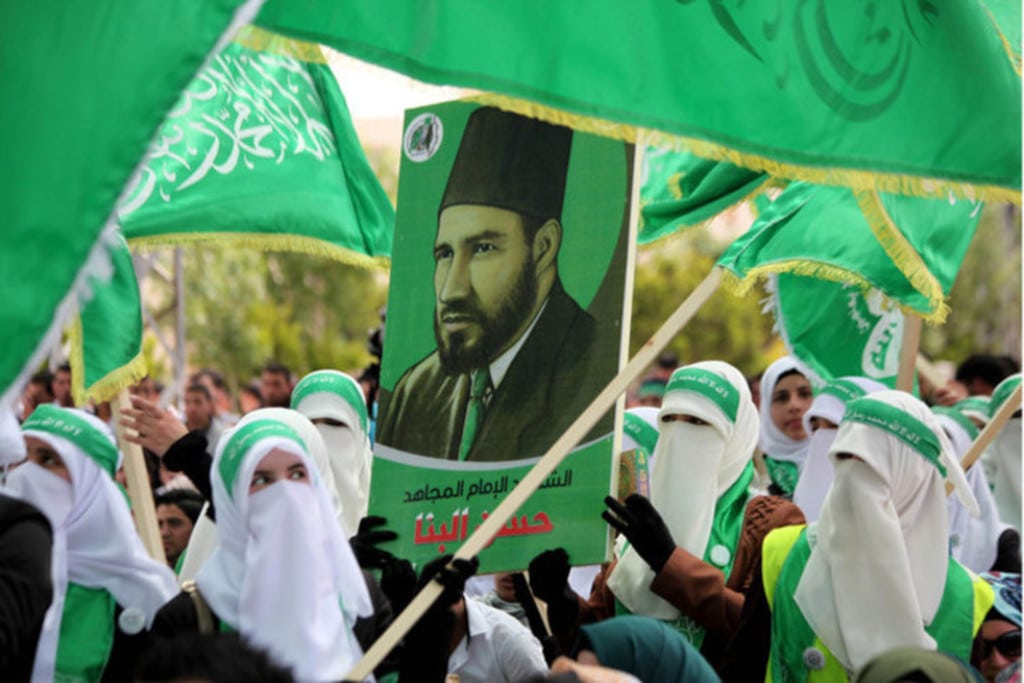Nahla Abdel Moneim
The international Brotherhood owns an economic network that it uses as sources of income to spend on its activities in targeted areas. The social institutions of a charitable and humanitarian nature are the most prominent variable in this network for their ability to collect donations and market the popular side of the group.
The Brotherhood was able to form an empire in the United States and European Union through organizations that operate as a soft power and deny their direct relationship with the terrorist group, as Brotherhood institutions have a religious and social orientation to prevent legal confiscation, especially in light of political pressures on the leaders of Western governments to declare the group terrorist and liquidate its sources of income.
Brotherhood in the West possesses vast donation wealth
Follow-ups show the wide influence of the Brotherhood’s institutions in the United States, specifically with regard to fundraising. Over the past few years, the Council on American Islamic Relations (CAIR) has managed to collect millions of dollars, using natural disasters and religious events to urge its followers to donate.
At the beginning of 2021, CAIR set a financial goal of collecting $3 million in donations during the first six months of the year. By the beginning of June, the amount of donations announced had exceeded $2.5 million.
The group thanked its supporters for accepting its call to achieve this semi-annual goal, noting that the donations it received during the last month of Ramadan greatly contributed to achieving the required millions.
In Ramadan 2020, CAIR tried to collect $2.5 million in donations separate from the rest of the other aspects of donations.
During the crisis of the spread of the corona virus, CAIR, as well as the Islamic Society of North America (ISNA), doubled its demands for donations to help those unable to overcome the pandemic. CAIR also took advantage of the Black Lives Matter demonstrations that hit the country against the backdrop of African-American citizen George Floyd being killed by police officers, starting a campaign seeking donations to defend those arrested in these demonstrations for violating the restrictions that had been imposed at the time to confront the spread of the pandemic.
In the countries of the European bloc, the group employs the Islamic Relief Organization, which was founded in 1984 to collect donations. The organization received a blow in Germany in 2020 when the Federation of Charitable Organizations stopped dealing with it because of its association with the Brotherhood, although it still operates heavily in Britain. In 2001, the group established the Al-Khair Foundation, led by Yusuf al-Qaradawi, which collected donations in the West, but Washington included him on the terrorist list in 2008.
These institutions play the most dangerous roles of the group by deepening the relationship with the different layers of society. On the one hand, they build links with those in need of their services from those who are unable, and on the other hand, they gain the sympathy of the donors for their various whims through their continuous announcements about the value of the large donations they reap, thus developing a mental image of the extent of trust in it as an entity capable of delivering aid.
Impact of the donation network on spiritual centers
Charitable institutions provide cover for the Brotherhood in order to achieve its political goals, as the group spends part of the donation money to spend on cultural and religious centers and places of worship that it runs in the West. Consequently, financial institutions are among the determining factors of the framework of ideologies adopted in religious centers, which represents a danger that may harm societal and national values in light of the Brotherhood’s belief in the futility of national borders.
The Finsbury Park Mosque in the United Kingdom is the most famous religious center run by the Brotherhood in Europe, as it is supervised by the Muslim League in the country, which is the group’s most important institution in London.
Halal economy and community profits
The group earns large sums of money from the halal food and beverage trade in the West, and the international organization branch in France is the most prominent actor in this regard, and the French Muslims organization in France grants companies approval to work in this field.
Brotherhood leader Ibrahim Mounir manages some of the group’s economic projects in the United Kingdom, most notably the Nile Shore Trust, which was established in August 2010 in London. The danger of these entities lies in the secrecy of their relations with the Brotherhood, which makes it spread without opportunities to undermine it governmentally.








































admin in: How the Muslim Brotherhood betrayed Saudi Arabia?
Great article with insight ...
https://www.viagrapascherfr.com/achat-sildenafil-pfizer-tarif/ in: Cross-region cooperation between anti-terrorism agencies needed
Hello there, just became aware of your blog through Google, and found ...